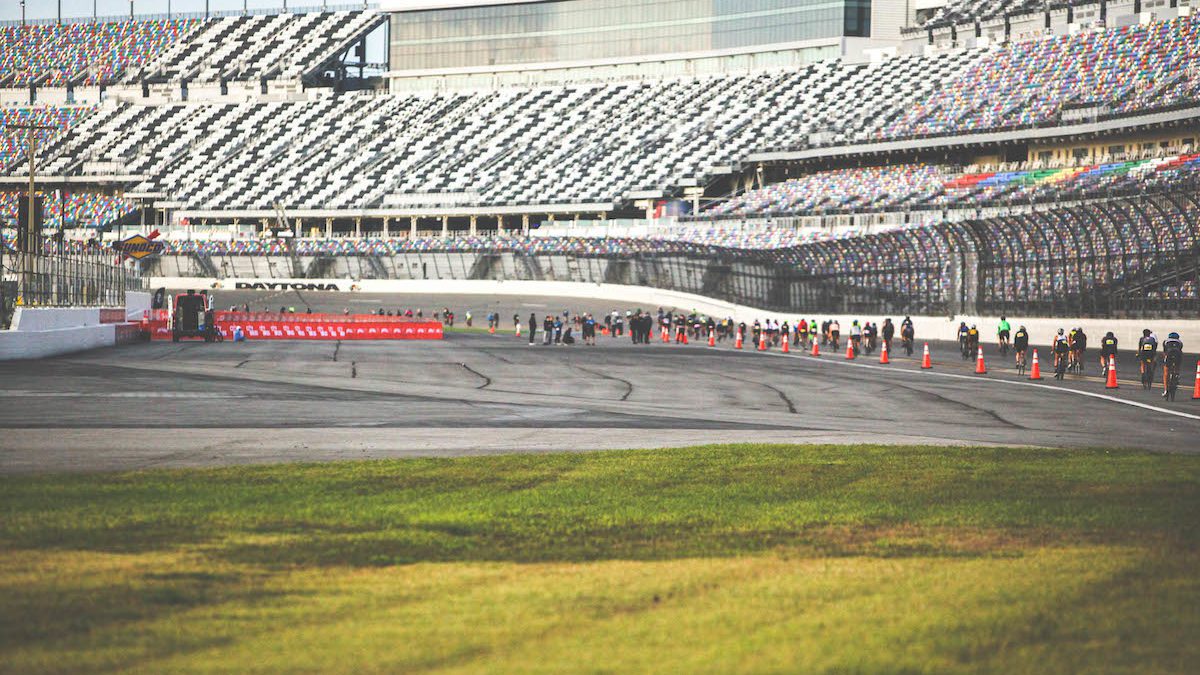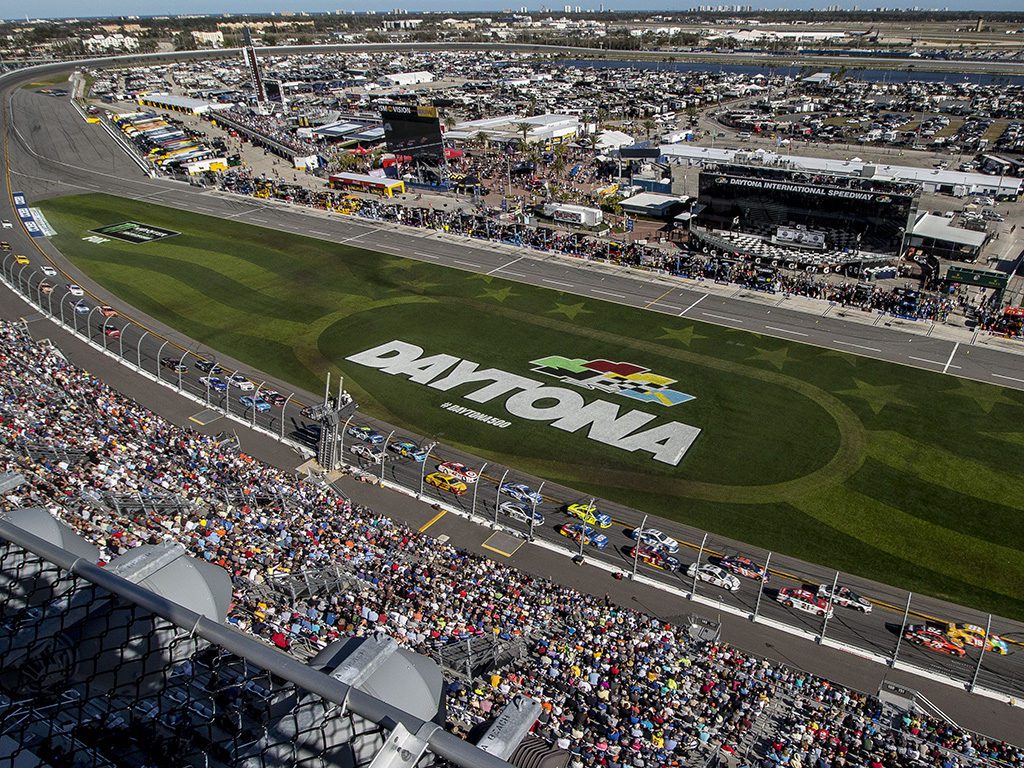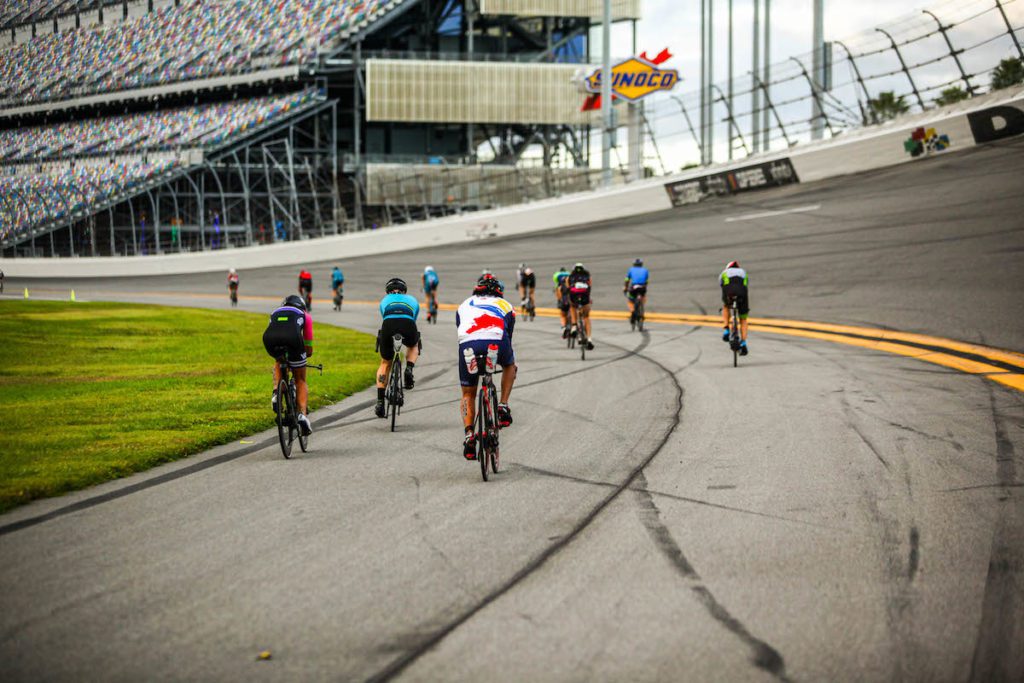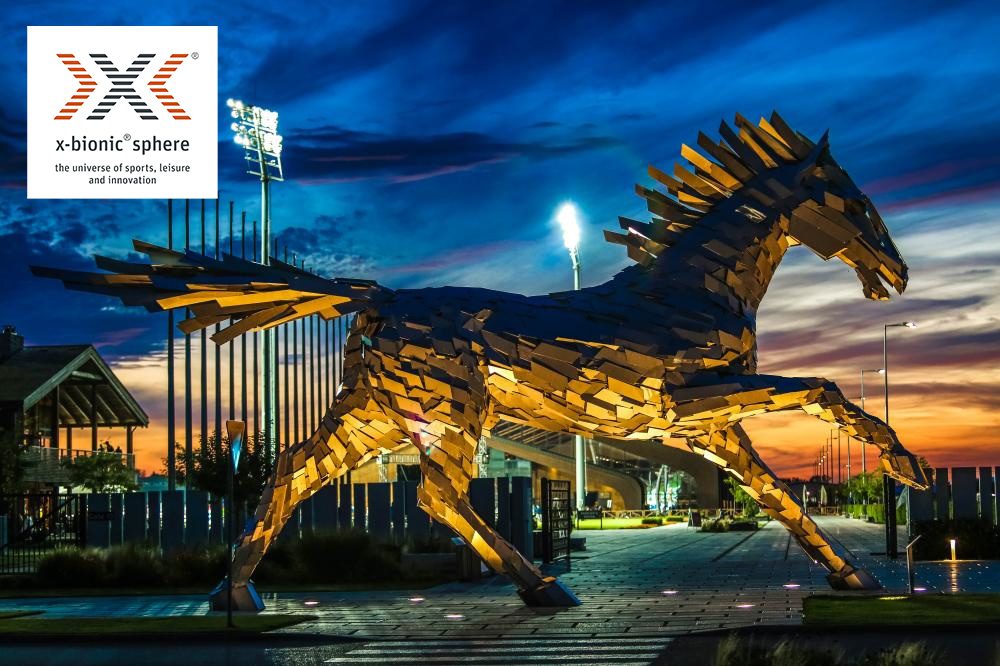Ready to Clash? The story behind the new multisport series and its speedway thrills
This weekend's Clash Daytona is the first event in the rebranded series
 Photo by:
Clash
Photo by:
Clash
When Challenge North America launched its Challenge Daytona event in 2018 – a triathlon situated within the confines of an enormous NASCAR motor speedway in Florida – more than a few triathletes scratched their heads, thinking athletes would be riding in boring loops for 90 km. But no, athletes do not just ride in circles for three hours. Rather, those who traveled to Florida in 2018 and 2019 saw a witnessed that the NASCAR venue was ideal, providing acres of parking and amenities, food and beverage vendors, on-site camping and RV parking, and an expo/finish line venue entirely customized and optimized for athletes and spectators.
Those few hundred participants saw all that in the event’s first two years, then, with the addition of a separate pro race — the PTO Championship at Challenge Daytona and its US$1.15 million prize purse – the rest of the world saw a globally broadcast triathlon that had big-deal panache and major-league excitement.
And with that, the formula was set: the raceway venue, the amateur and pro multi-day format, the spectator and family-friendly amenities, and a brand-new type of destination-race weekend.
Earlier in 2021, Challenge North America announced it would become ‘Clash,’ which in the next 12 months will produce Clash Daytona (Dec. 3-5), Clash Miami (Mar. 11-13, 2022), Clash Watkins Glen (July 8-10, 2022) and Clash Atlanta (Nov 12-13, 2022). In western New York’s Finger Lakes district, the Watkins Glen race is within easy driving from southern Ontario and Quebec provinces.
The Clash team is a who’s who of triathlon event management, with several senior-team members snatched up when Ironman laid off scores of employees in July, 2020.

Clash and NASCAR team up
All four race weekends will take place at NASCAR venues—just like Daytona. Clash CEO Bill Christy has a tight relationship with NASCAR; his wife, Lesa France Kennedy, is the CEO of the International Speedway Corporation, which owns 13 active motor-racing venues in North America. Those locations host their NASCAR-branded races along with a plethora of other auto and motorcycle racing events. Now, some of those tracks will host non-motorized races – triathlons, duathlons, running, mountain biking and potentially more down the road. Courses will also extend beyond the venues (no riding in circles), using nearby lakes where the venue doesn’t include open water, and venturing into nearby countryside.
Andre Lapar, executive vice president for race operations for Clash, says that the four events in 2021-2022 are just the beginning. The company plans to double that the following year. And races will all be tailored to fit each venue’s attributes. For example, Clash Atlanta will feature mountain biking options since it’s adjacent to a NASCAR-owned property leased to Fox Factory Racing, with 12 miles of dirt tracks and trails.
If you’re not a fan of auto racing, you’ll be forgiven for not fully appreciating the enticing potential of the partnership. The first thing to know? These venues are huge.
For triathletes used to being crammed into a city park (or worse, a parking lot), the Clash host venues offer breathing room. The Watkins Glen speedway, for one, hosts upwards of 39,000 people for a typical NASCAR event and covers more than 550 acres. And the Daytona speedway is even larger, with a capacity upwards of 160,000. And of course, there’s parking and services already in place to support those numbers. A well-attended triathlon weekend hosting maybe 3,000 people will easily be comfortable.
The “infield” is where the action’s at – that’s the huge area in the middle of the track where you would normally find all the car’s crews, facilities, and VIP spectators. For the Clash events, that infield will accommodate the expo area, transition, music stages, start/finish, beer tent, food vendors and more.
Aside from sheer size, the speedway locations boast other advantages for multisport events.

A big star-studded weekend party
One of the best aspects of a private-property venue? You don’t get kicked out when some other group needs to use the space. Clash will occupy each venue for a three-day weekend, featuring several race options for age-groupers, kids’ races and a pro race. Media relations manager Blair LaHaye says this kind of festival atmosphere was the vision of CEO Bill Christy, “Bring the family, keep the kids engaged and happy. We knew that the speedways offered so much opportunity.”
Just a peek at the Clash Daytona schedule illustrates that these are going to be action-packed weekends.
- Friday: Expo, a kids’ triathlon, a 5K running race and on the track “Hot laps” in race cars, where athletes and families can opt to ride a lap at top speeds of 250 kph.
- Saturday: Sprint tri, sprint relay, sprint duathlon and, in the afternoon, the pro men’s and pro women’s races.
- Sunday: Middle-distance triathlon and duathlon
There’s a good reason the pro races are on Saturday, separate from the largest event, the middle-distance triathlon: it allows triathlon’s biggest fan base –the age group triathletes – to watch and cheer as the professionals duke it out on a modified course taking place on the race track itself. Lapar notes that having the biggest events on different days also allows pros to engage with age groupers at the race on Sunday. Clash plans to broadcast all of the pro races, and again can take advantage of NASCAR’s facilities and expertise. “The infrastructure is already there for a high-quality, high-adrenaline broadcast event. The venues have the high-speed cabling, the camera mounts, the drones; they know how to capture the drama of racing, allowing us to really tell the story for the pro race.”
Some events will have bonus components too. In Watkins Glen, for example, the famous Finger Lakes Wine Festival also takes space at the speedway, with more than 90 wineries represented, live music, food demonstrations and family activities. Athletes cross the finish line and can head straight into the wine festival for “recovery drinks,” with their free entry.
Racing and RV-ing
One of the coolest aspects of Clash events piggybacks on a fixture of the NASCAR circuit: RV camping. Multi-sporters over the last year have snatched up RVs, motor homes and trailers as a way to travel during a pandemic, and the popularity of RV-ing in general has soared. Each of the Clash venues offers plenty of RV spots with electricity and access to water. Just as NASCAR fans will book a space right at the venue for their RV, athletes can do that too. No RV? Andre Lapar notes that each event will have a third-party RV-rental partner. For Watkins Glen, it’s RVShare.com. “It’s basically an Air BnB for RVs. Athletes can check out what they want, and a lot of them will even deliver the RV to you.”
Clearly, staying inside the race venue eliminates a lot of hassle. There’s no scrambling for parking on race day. No waiting for the portable toilet (you have your own). You’ve got a place for family and friends to get out of the sun or take a nap, and you’re within walking distance of both the start and the finish.

Challenge Championship qualifiers
Challenge is the biggest global triathlon brand after Ironman, with 40 races all over the world. Its Challenge Roth (Germany) event is arguably the most prestigious long-course event after the Ironman World Championship in Kona, attracting 6,000 athletes annually. A newer middle-distance event, Challenge’s “The Championship,” requires qualification via other Challenge events and goes head-to-head with Ironman’s 70.3 World Championship. Although Clash no longer lives under the Challenge umbrella, athletes will be able to use the events as qualifiers for the Challenge Championship, which this year was held in Samorin, Slovakia.
Right now, the Clash vision is simple: To put on the best possible events. The uniqueness of the NASCAR venues puts these races in a class of their own. Combined with the festival atmosphere, the excitement of a high-profile pro race with big-deal prize money, and the ability to camp right in the venue could be a winning formula for the new company.
